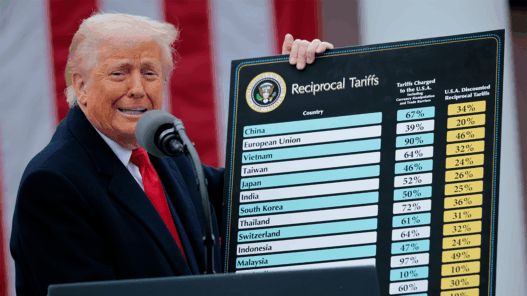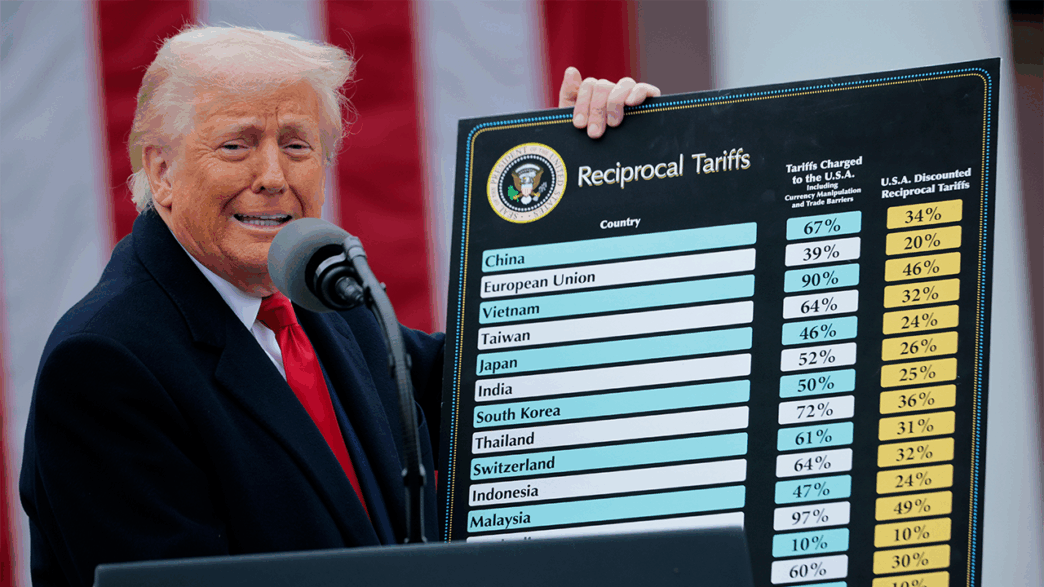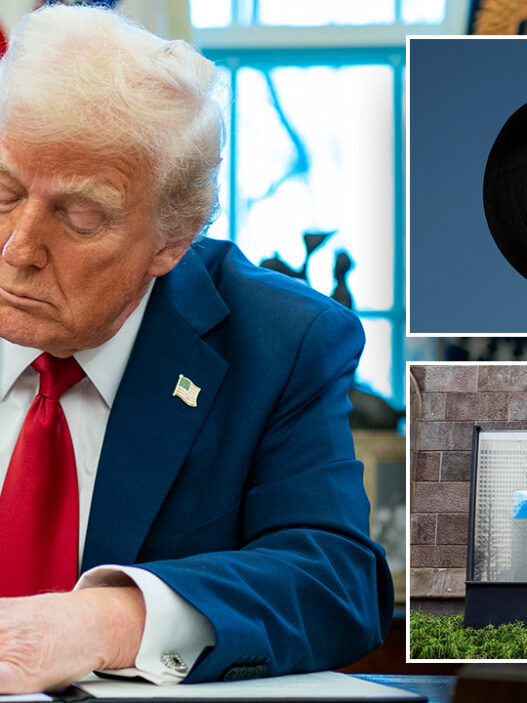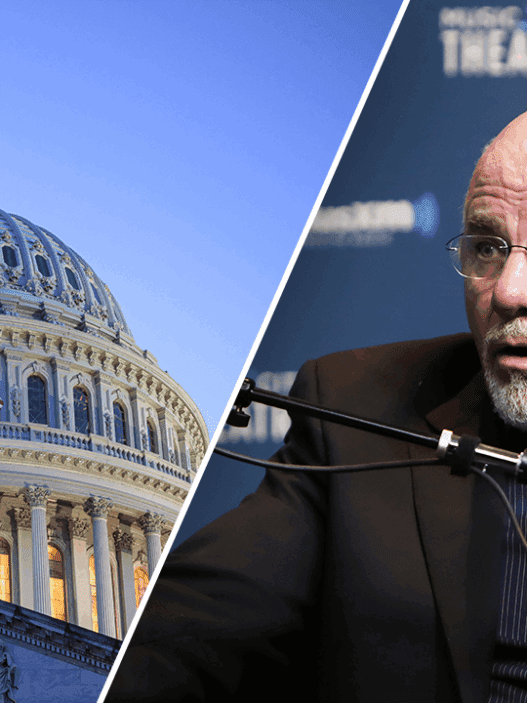A federal judge rejected an emergency lawsuit this week aimed at stopping President Donald Trump’s sweeping tariffs from taking force, punting the case to the U.S. Court of International Trade for further review.
U.S. District Judge T. Kent Wetherell II rejected a Florida-based stationary company’s emergency motion to stay their challenge to Trump’s tariffs, agreeing that the case should be heard by the U.S. Court of International Trade, noting that it “makes no sense for this case to remain in this court because the CIT is already considering multiple nearly identical suits.”
He also seemed to assert that Trump has the authority under the International Emergency Economic Powers Act, or IEEPA, to unilaterally impose the sweeping tariffs for reasons other than raising revenue.
The decision is the first time a federal judge has apparently sided with Trump’s contention that the 1970s-era law gives him cover to unilaterally impose sweeping tariffs for reasons other than raising revenue. It’s also a near-term win for the Trump administration, which has sought to move its cases to the New York-based court.
US COURT OF INTERNATIONAL TRADE SIDES WITH TRUMP IN TARIFF CASE
It comes as plaintiffs have asserted in a series of lawsuits filed across the country that Trump inappropriately used the International Emergency Economic Powers Act (IEEPA) as the basis for implementing the sweeping new import fees.
But Wetherell seemed to feel differently. He said Trump did have the power to enact the tariffs, a question he said that “was effectively answered 50 years ago” by the precedent set in United States v. Yoshida International Inc., a case brought by a Japanese zipper company under the Nixon administration.
Judge Wetherell said that Trump’s rationale for the tariffs, which include stemming the flow of drugs into the U.S., and to resolve a so-called “trade deficit” with China, are sufficient to meet the terms of invoking IEEPA.
“Likewise, the stated purpose of the tariffs at issue in this case is to help stem the flow of illicit drugs into the United States and to remedy an ongoing trade imbalance, not to raise revenue,” Judge Wetherell said.
But the win could be short-lived.
It’s unclear if Trump will have an edge in that Court of International Trade, though that court has previously been more sympathetic to the administration.
FEDERAL JUDGES IN NEW YORK AND TEXAS BLOCK TRUMP DEPORTATIONS AFTER SCOTUS RULING
The three-judge panel rejected a request earlier this year filed by a group of small businesses that sought to immediately halt Trump’s tariffs from taking force, saying plaintiffs failed to show a likelihood that they would suffer “immediate and irreparable harm” as a result of the economic penalties.
But it’s been 50 years since CIT, then known as the Court of Customs and Patent Appeals, decided whether a president had authority to impose tariffs.
There’s also a “difference between what was taking place in the early 1970s, and the disgruntlement of one small Japanese zipper company, and an administration that wants to use these standards that Congress set somewhat vaguely eons ago” of what constitutes a national emergency, David H. Feldman, an economist and professor at William & Mary, told Fox News Digital in an interview.
“If the courts ultimately punt completely, and say these statutes mean whatever the president thinks they mean, then we have descended into a world” where the commander-in-chief can make these determinations on a whim, or as he sees fit for individual companies, Feldman said. This means there would essentially be “no check on the presidential power to manipulate markets,” he added.
Wetherell seemed to think so, however.
“The reasoning in Yoshida is persuasive, and the Court sees no reason why it would not apply to IEEPA because the operative language of IEEPA is identical to the operative language in TWEA,” he said.
The ruling comes amid a flurry of lawsuits that have sought to block or pause Trump’s near-term actions, including lawsuits aimed at limiting DOGE, or the Elon Musk-led government “efficiency” agency, blocking Trump’s ban on birthright citizenship, and challenging tariffs, among many other things.























